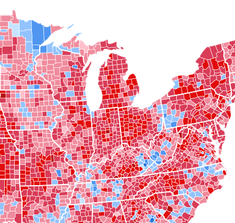Featured Quizzes
User Quizzes
Create Quiz
Data and Charts
Badges and Games
About JetPunk
JetPunk Shop
Dark Mode

U.S. Electoral College Landslides
Name the candidates who won or lost the U.S. Presidential election by the largest margins, and also their opponents.
According to Wikipedia
Rate:
Featured Quiz
Last updated: December 22, 2019
You have not attempted this quiz yet.
More quiz info >>
| First submitted | October 27, 2016 |
| Times taken | 13,620 |
| Average score | 55.6% |
| Rating | 4.13 |
3:00
Enter answer here
0
/ 18 guessed
Time Used
00:00
Best Time
00:00
The quiz is paused. You have remaining.
Scoring
You scored / = %
This beats or equals
% of test takers
also scored 100%
The average score is
Your high score is
Your fastest time is
Keep scrolling down for answers and more stats ...
|
New and Popular
Save Your Progress
Copyright H Brothers Inc, 2008–2024
Contact Us | Go To Top | View Mobile Site

The reason for the GOP's dominance in that period is that the southern bloc that had been dependably Democratic from the days of Andrew Jackson finally abandoned the Democratic Party for good (so far) because LBJ signed the 1964 Civil Rights Act and 1965 Voting Rights Act into law. The 1968 election was close because the formerly Democratic southern states may have left the Dems, but they didn't turn to the Republicans yet, instead running 3rd Party pro-segregation candidate George Wallace. By '72 the 'Solid South,' joined the GOP, where it remains, and it's why 3 elections from '72 and '84 are on this list, and just missing the cut is George H. W. Bush's dismantling of Michael Dukakis in 1988.
Given the State, Name a President
Presidential candidates from New York and Massachusetts
Presidents who lost a presidential election
People on the Most Presidential Tickets
Family Members on Presidential Tickets
Presidential Tickets Since 1948
And for a bigger challenge, Presidential Tickets Since 1796